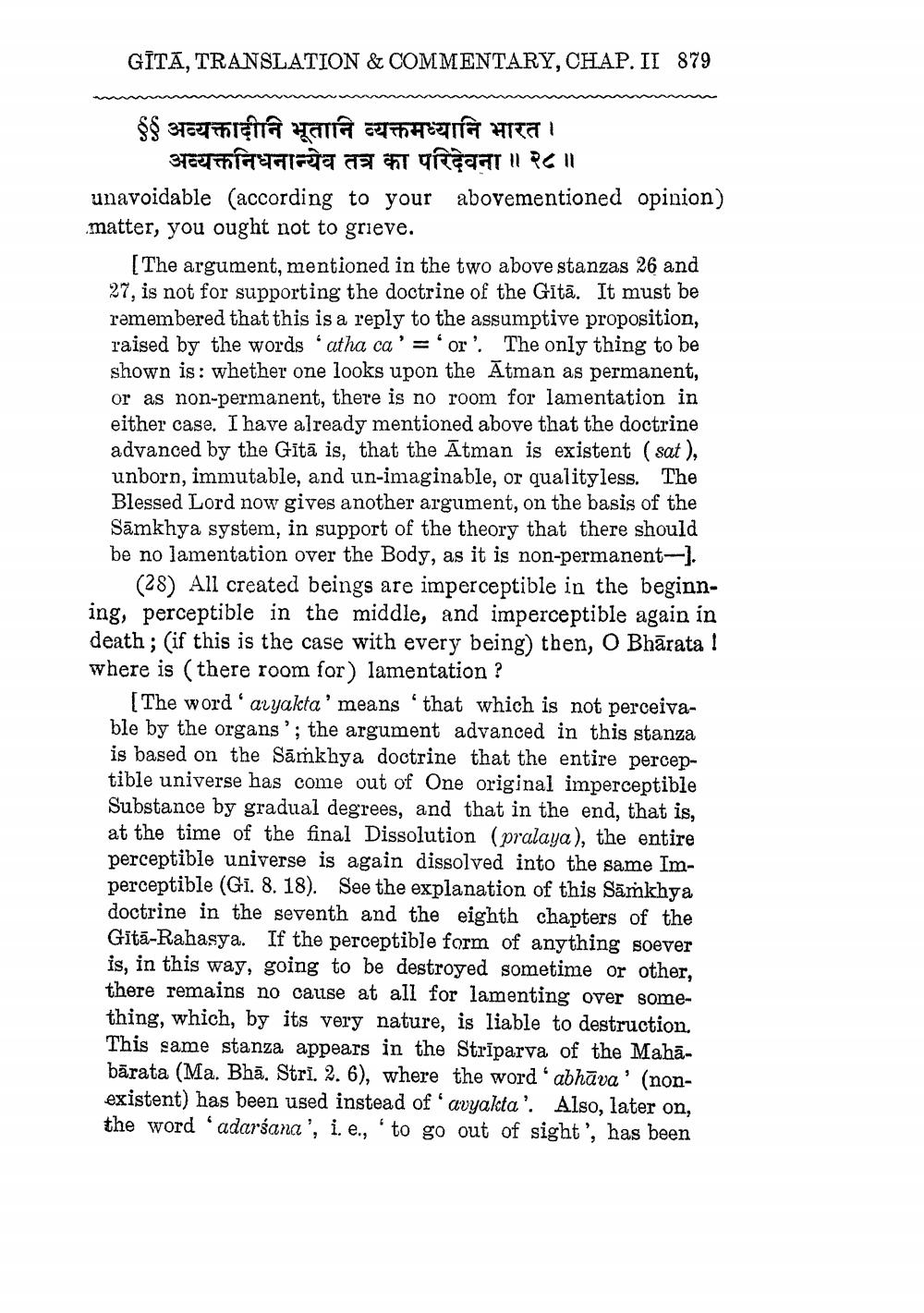________________
GĪTĀ, TRANSLATION & COMMENTARY, CHAP. II 879
mmmmmmm अव्यक्तादीनि भूतानि व्यक्तमध्यानि भारत ।
अव्यक्तनिधनान्येव तत्र का परिदेवना ॥२८॥ unavoidable (according to your abovementioned opinion) matter, you ought not to grieve.
[The argument, mentioned in the two above stanzas 26 and 27, is not for supporting the doctrine of the Gītā. It must be remembered that this is a reply to the assumptive proposition, raised by the words 'atha ca' = 'or'. The only thing to be shown is: whether one looks upon the Atman as permanent, or as non-permanent, there is no room for lamentation in either case. I have already mentioned above that the doctrine advanced by the Gītā is, that the Ātman is existent (sat), unborn, immutable, and un-imaginable, or qualityless. The Blessed Lord now gives another argument, on the basis of the Sāmkhya system, in support of the theory that there should be no lamentation over the Body, as it is non-permanent-).
(28) All created beings are imperceptible in the beginning, perceptible in the middle, and imperceptible again in death; (if this is the case with every being) then, O Bhārata! where is (there room for) lamentation ?
[The word ' aryakta ' means that which is not perceivable by the organs'; the argument advanced in this stanza is based on the Sāmkhya doctrine that the entire perceptible universe has come out of One original imperceptible Substance by gradual degrees, and that in the end, that is, at the time of the final Dissolution (pralaya), the entire perceptible universe is again dissolved into the same Imperceptible (Gi. 8. 18). See the explanation of this Sāmkhya doctrine in the seventh and the eighth chapters of the Gītā-Rahasya. If the perceptible form of anything soever is, in this way, going to be destroyed sometime or other there remains no cause at all for lamenting over something, which, by its very nature, is liable to destruction, This same stanza appears in the Striparva of the Mahābārata (Ma. Bhā. Stri. 2. 6), where the word ' abhāva' (nonexistent) has been used instead of avyakta'. Also, later on, the word 'adarśana', i. e., to go out of sight', has been




